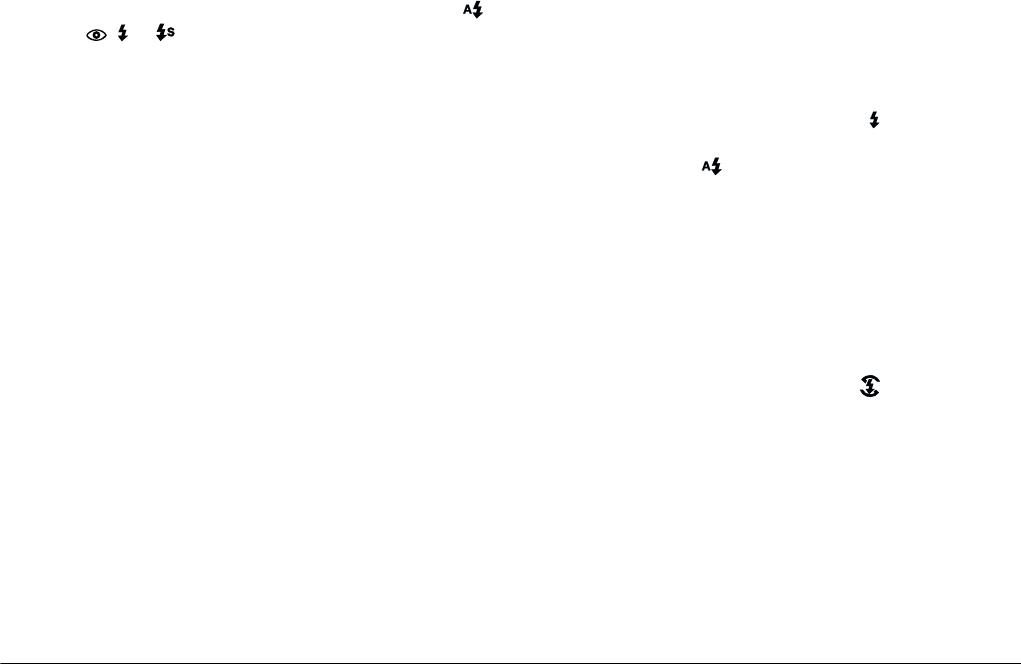
7-8
Maintenance and Troubleshooting
L
Proof Sign-off:
BLE H.Kato E.Omori
F.Fujimori
SEI M.Kauppi
R4C4410
Rev. C
A5 size TRBLE.FM
2/11/00 Pass 3
Your picture is too dark (underexposed).
You may need to use the flash. Set the flash to ,
, or , following the instructions in “Setting
the flash” on page 2-9.
When you use the built-in flash, make sure of the
effective flash range from 80 to 370 centimeters for
wide-angle shot and from 80 to 260 centimeters
for telephoto shot. When sensitivity is set to
Standard
and you are using the macro feature,
stay 20 to 50 centimeters away from the subject.
If you need more light, attach a high capacity
flash, which is sold separately as a camera
accessory, to your PhotoPC 850Z. See “Selecting
the internal or external flash” on page 2-32. For
instructions, see the documentation of the flash.
You can adjust the exposure to make your photos
brighter. See “Making basic exposure
adjustments” on page 2-18, or “Making advanced
exposure adjustments” on page 2-19.
Use image-editing software to adjust the picture's
brightness and contrast.
If you are using the macro feature to take close-up
photos, be sure to provide adequate lighting for
your subject, since the camera’s aperture is
automatically set to the smallest setting.
Your picture is too light (overexposed).
If you are using the forced flash setting, the flash
may be too bright. Try setting the flash to the
automatic setting. See “Setting the flash” on
page 2-9.
You can adjust the exposure manually to make
your photos darker. For instructions, see “Making
advanced exposure adjustments” on page 2-19.
When you use the flash and the macro function
together, you may find your pictures come out too
light, since the flash is close to the subject. In this
case, try turning the flash off .
If you are facing a bright light source, you may
need to take your picture from a different angle.
You can adjust the exposure to make your photos
brighter. See “Making basic exposure
adjustments” on page 2-18, or “Making advanced
exposure adjustments” on page 2-19.


















